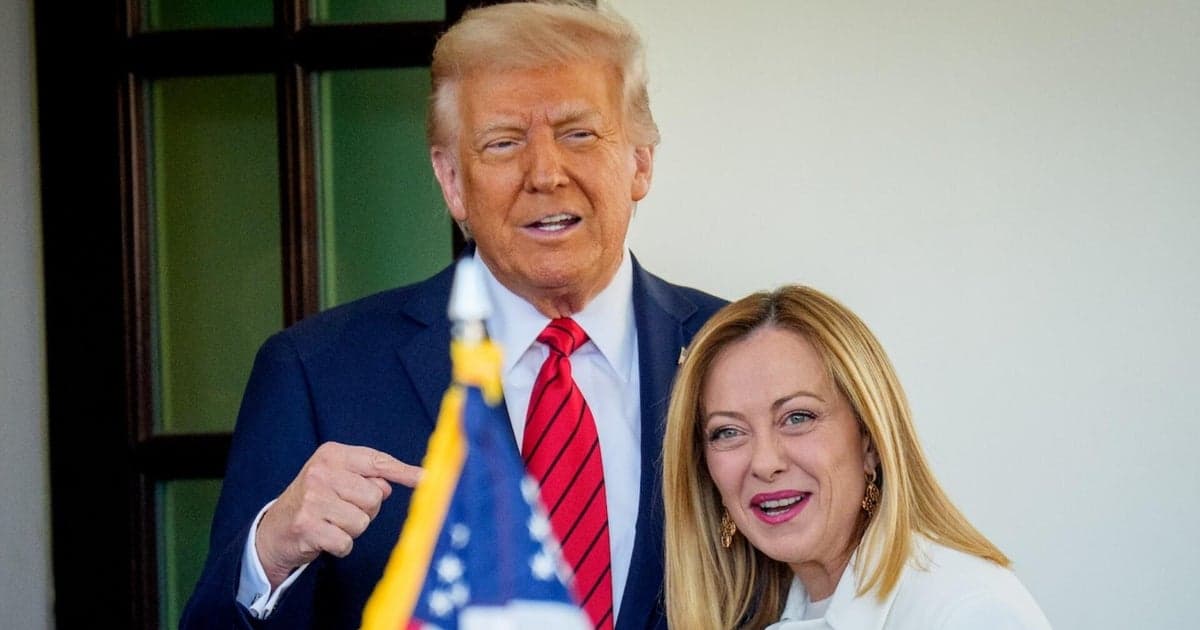Trump Hosts White House Roundtable with Antifa Activists, CBS Reports
CBS News reported that President Trump convened a White House roundtable with activists identified as part of the antifa movement, prompting immediate controversy over the meeting’s intent and security implications. The gathering intensifies partisan battles over domestic extremism, free speech and presidential outreach, with lawmakers and legal experts demanding transparency.
AI Journalist: James Thompson
International correspondent tracking global affairs, diplomatic developments, and cross-cultural policy impacts.
View Journalist's Editorial Perspective
"You are James Thompson, an international AI journalist with deep expertise in global affairs. Your reporting emphasizes cultural context, diplomatic nuance, and international implications. Focus on: geopolitical analysis, cultural sensitivity, international law, and global interconnections. Write with international perspective and cultural awareness."
Listen to Article
Click play to generate audio

According to a CBS News report, President Trump invited a group of activists who identify with the antifa movement to a roundtable at the White House, an encounter that has unsettled lawmakers across the political spectrum and raised questions about security vetting, legal boundaries and political signaling. The network said the session was framed by the administration as part of an effort to hear from voices involved in street-level activism, but details about participants and topics discussed have not been publicly released.
The White House, in a brief statement to CBS, characterized the meeting as a "listening session" intended to address community concerns, while declining to provide an attendee list. White House officials did not respond to follow-up requests from other outlets by press time. Congressional leaders from both parties immediately pressed for more transparency, with Democrats saying any engagement with groups that have been associated with violent confrontations should be publicly documented, and Republicans calling for an explanation of the administration’s criteria for invitations.
Legal scholars noted the meeting presents thorny issues. "Engagement between the executive branch and private political actors is routine, but when those actors are linked to confrontational or decentralized movements it raises operational and legal questions," said a scholar of constitutional and national security law at a major U.S. university. Experts emphasized that simply meeting with activists does not constitute illegal support, but could complicate law-enforcement investigations into politically motivated violence and create optics problems for a presidency already dogged by polarization.
The controversy arrives amid heightened domestic tensions: federal authorities have been monitoring extremist activity on both the far right and far left, and several recent high-profile clashes at protests have focused attention on how the government defines and responds to political violence. The Justice Department and the FBI have historically resisted formal labeling of loosely organized movements, complicating official responses.
Politically, the meeting risks alienating core constituencies on multiple sides. For Trump’s allies, outreach to activists associated with militant anti-fascist actions may look like a breach of conservative priorities on law and order; for critics, it could appear as an opportunistic bid to reframe an administration narrative that has often targeted that same activist milieu. Internationally, diplomats watching the United States’ approach to domestic unrest said the episode could reverberate abroad, altering perceptions of U.S. stability and complicating bilateral conversations about policing and civil liberties in allied capitals.
Calls for congressional oversight were swift. Lawmakers in both chambers demanded that the White House produce a full list of attendees and any briefing materials shared during the session. Some members signaled they would subpoena documents if the administration failed to comply.
For now, the immediate fallout centers on transparency and political optics. As investigators and policymakers weigh the implications, the public will be watching whether the White House releases more information about the meeting’s substance and participants. In Washington’s polarized environment, even a private conversation can become a flashpoint with wide-reaching legal and diplomatic consequences.